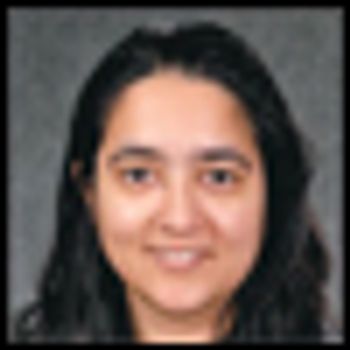
A growing body of evidence supports the use of CT colonography for colon cancer screening, and a U.S. panel should reverse its decision to not endorse the procedure, according to the CT Colonography Coalition.

Your AI-Trained Oncology Knowledge Connection!


A growing body of evidence supports the use of CT colonography for colon cancer screening, and a U.S. panel should reverse its decision to not endorse the procedure, according to the CT Colonography Coalition.

Once thought a risk for malignancy, septated ovarian cystic tumors are actually mostly benign. A study at the University of Kentucky changes the standard of care for those patients.

Nighthawk remains poised for growth despite a recent announcement that it is closing some offices and cutting jobs, according to a financial analyst who follows the company.

A multi-institutional group of researchers have zeroed in on a more accurate way to decipher treatment outcomes in young leukemia patients using information from a simple complete blood count test.

Using renal mass biopsy to guide treatment decisions for small tumors is cost-effective relative to direct surgery, and can spare many patients unnecessary surgical procedures, according to Massachusetts General Hospital researchers.

A U.S. Preventive Services Task Force recommendation that routine breast cancer screening should begin at age 50, and take place every two years, did not sit well with the breast cancer community. The new recommendations will result in “many needless deaths,” stated the Society of Breast Imaging and the American College of Radiology.

PET scanning with FDG has proved its mettle as a way to judge tumor response to treatment. Now Australian researchers are going one step further and working with another radiotracer, which they have determined can monitor the response of non-small-cell lung cancer and normal tissue changes during radical chemoradiotherapy.

Radiofrequency ablation can decrease disease progression in patients with dysplastic Barrett esophagus, or metaplasia of the espophageal epithelium, according to a study out of the University of North Carolina in Chapel Hill. The researchers also found that the technique eradicated dysplasia and intestinal metaplasia.

Ultrasound is an effective way to monitor lymph node recurrence after breast cancer surgery, South Korean researchers reported. Regional lymph node recurrence affects just 2% to 16% of patients with any stage of breast cancer, but is difficult to manage and associated with poor prognosis.

A review article asserting breast MRI does not improve surgical planning, reduce follow-up surgeries, or reduce the risk of local recurrences drew the ire of the breast imaging community.

A prominent Danish researcher is continuing to question the value of screening mammography, reporting that one in three breast cancers is overdiagnosed.

Using FDG-PET/CT, a multidisciplinary team has been able to determine within a short period of time whether neoadjuvant therapy for soft-tissue sarcoma is working.

An MRI study of risk factors for breast cancer in young women, including teenagers, concluded that risk assessment and prevention should start much earlier in life than previously recommended. The Canadian study suggests using imaging techniques that avoid patient exposure to ionizing radiation.

A recent study in the Journal of the American Medical Association on the increased risk of venous thromboembolism in cancer patients taking bevacizumab (Avastin) resulted in a flurry of letters to the editor decrying the link between the two.

Imaging with MR and/or PET/CT can help physicians figure out appropriate treatment for cervical cancer patients as well as prevent unnecessary therapy, according to a new study.

Evidence continues to mount that a regular yoga practice can support emotional well-being in cancer patients. The latest study by a group at Wake Forest University School of Medicine in Winston-Salem, N.C., found that restorative yoga eased fatigue in women with breast cancer.

Thoracic CT scans in cancer patients require careful inspection in order to pinpoint previously undetected lesions, according to a study by Canadian radiologists. Jean-Charles Vinet, MD, and colleagues found that PET/CT detected an additional 20% of lesions from the supraclavicular notch to the adrenals that were not found on chest CT alone.

Potential candidates for accelerated partial breast irradiation (APBI) may benefit from pretreatment MRI to ensure no cancer is missed, according to a study conducted by a multidisciplinary group of researchers.

An increase in birth length by 2 cm is associated with a 9% increase in breast cancer risk, according to a study reported in PLoS Medicine, online. Isabel dos Santos Silva, MD, PhD, a professor of epidemiology at the London School of Hygiene and Tropical Medicine and colleagues, examined 32 studies involving 22,058 breast cancer cases.

Conducting colonoscopies for people in their mid 50s can save money, according to research presented at the 2008 American College of Gastroenterology meeting in Orlando, Fla. The savings averages $2 for every dollar spent, the study found.

Moderate consumption of red wine may decrease the risk of lung cancer in men, according to a study published in the October Cancer Epidemiology, Biomarkers and Prevention journal (17: 2692–2699, 2008).

Published: November 1st 2003 | Updated:

Published: November 1st 2008 | Updated:

Published: November 1st 2008 | Updated:

Published: June 18th 2009 | Updated:

Published: June 25th 2010 | Updated:

Published: April 22nd 2009 | Updated: